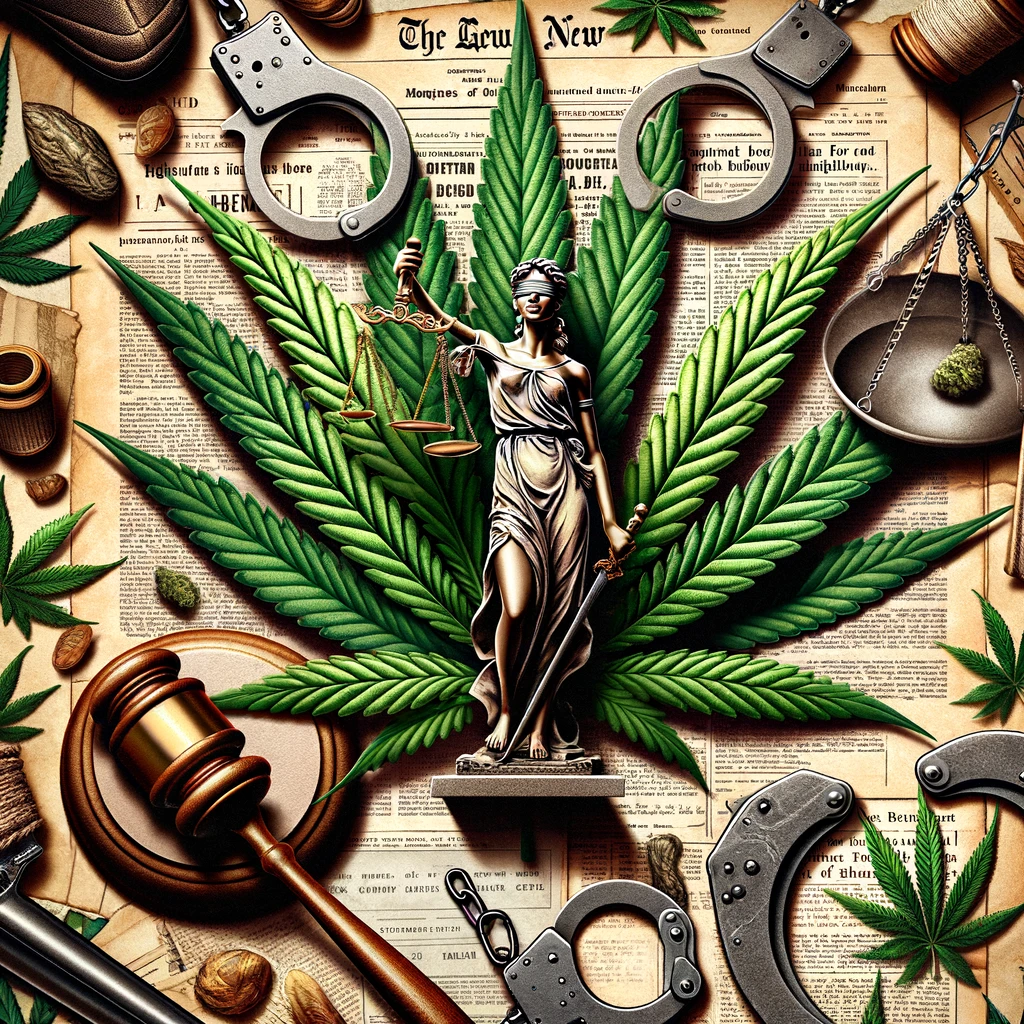Cannabis, also known as marijuana, has undergone a complex journey in terms of its legal status and public perception. From being widely used for medicinal and recreational purposes for centuries, to being criminalized in the early 20th century, marijuana prohibition has had a significant impact on society. Here are 10 key facts about marijuana prohibition that provide insight into the history and current state of the drug.

- The first federal law, the Marihuana Tax Act of 1937, to prohibit marijuana was seen as a major setback for those who enjoyed using marijuana for recreational or medicinal purposes. It made it difficult for people to access the drug and could lead to severe penalties for those caught with it. This law was viewed as a restriction on personal freedom and a step backwards in terms of understanding the benefits of the drug.
- The misinformation and racism surrounding marijuana in the 1930s was viewed as a major injustice by those who used the drug. They felt that their rights were being taken away based on false information and prejudice, rather than any real harm caused by marijuana.
- The classification of marijuana as a Schedule I drug under the Controlled Substances Act was seen as a major blow by marijuana users. They felt that the drug was being unfairly criminalized and that the true potential of marijuana was not being acknowledged by the government.
- The legalization of marijuana for medical or recreational use in some states was viewed as a positive step forward by those who used the drug. It allowed them to access marijuana legally and without fear of prosecution. This was seen as a victory for personal freedom and the recognition of the benefits of the drug.
- The war on drugs, and the targeting of marijuana specifically, was viewed as a major injustice by those who used the drug. They felt that the criminalization of marijuana had led to widespread discrimination and that the drug was being used as a tool to marginalize and criminalize certain groups of people.
- The decrease in crime rates and increase in tax revenues in states where marijuana is legal was seen as a positive outcome by those who use the drug. They felt that legalization had the benefit of taking marijuana sales off the black market and providing a source of revenue for state and local governments.
- The growth of the marijuana industry, with projections of it being worth billions of dollars in the future, was seen as a positive development by marijuana users. They saw this as recognition of the drug’s value and the potential for it to be a major player in the global economy.
- The federal government’s classification of marijuana as a Schedule I drug and the resulting barriers to research was viewed as a major setback by marijuana users. They felt that this hindered progress in understanding the potential benefits of the drug, and that more research was needed to fully understand its effects.
- The growing public support for legalization of marijuana was seen as a positive development by marijuana users. They felt that this reflected a shift in public opinion towards the drug, and that the majority of Americans recognized its benefits.
- The pressure on the federal government to re-evaluate its stance on marijuana prohibition was seen as a positive development by marijuana users. They felt that this could lead to more progress in terms of legalization, and that the federal government was finally beginning to recognize the true value of marijuana.
Conclusion
Marijuana prohibition has had a significant impact on society and its perception and legal status have evolved over time. From criminalization to legalization in some states, the story of marijuana is complex and multifaceted. The facts discussed in this article provide a glimpse into the history and current state of marijuana and its prohibition. The ongoing legalization efforts and the shift in public opinion towards acceptance of marijuana, highlights the need for further education and open-minded discussions about the drug, including its potential benefits and risks.

